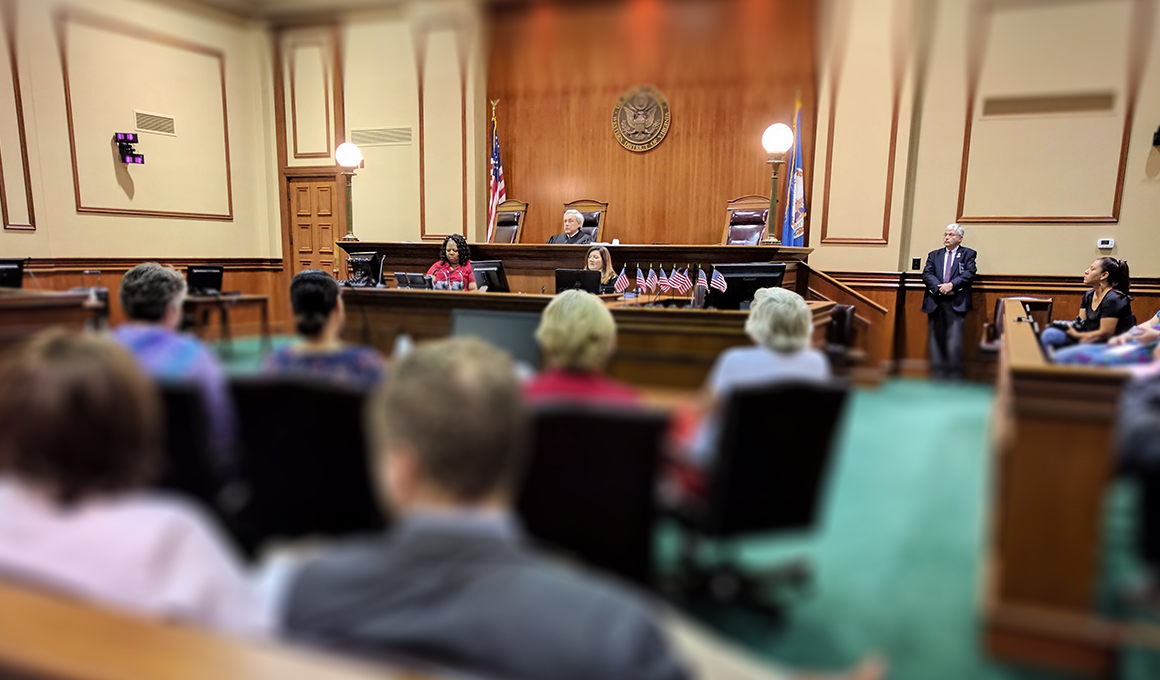Trial Presentation Clarifying Complex Evidence for Courtroom Understanding
Trial Presentation Clarifying Complex Evidence for Courtroom Understanding
Blog Article
Mesmerize the Court: Essential Aspects of a Powerful Test Presentation
Essential components such as comprehending the target market, crafting a compelling story, and understanding spoken and non-verbal communication are vital elements of a reliable presentation. As these elements intertwine, they develop a natural method that not just educates yet likewise engages jurors on numerous levels.

Comprehending Your Audience
Understanding your target market is an essential aspect of efficient test presentation. An effective presentation depends upon the capacity to comprehend the demographics, values, and predispositions of jurors. This understanding notifies just how debates are framed, evidence is presented, and emotional appeals are crafted, making sure that the message reverberates with the jurors on an individual level.
Research indicates that jurors come from varied histories and might have varying degrees of comprehending concerning legal process. In addition, comprehending the jurors' potential predispositions and life experiences enables the trial speaker to expect objections and address worries proactively.
Efficient test presentation additionally includes observing jurors' reactions throughout the process. Engaging with jurors as people instead than a cumulative unit is necessary in promoting a strong link in the court.

Crafting an Engaging Story
Crafting an engaging story is necessary in leading jurors via the intricacies of a case. A well-structured narrative not just simplifies elaborate legal concepts yet additionally involves jurors on a psychological level, making the details much more relatable and memorable.
To accomplish this, attorneys should start by identifying the core message they wish to communicate. This message ought to reverberate with the jurors' worths and experiences, fostering a link that goes beyond mere realities. The narrative must unfold practically, offering events in a clear sequence to avoid complication. This sequential approach can assist jurors comply with the development of occasions, highlighting domino effect.
Integrating human components-- such as personal tales or stories-- can further improve the narrative's influence. These aspects stimulate empathy, allowing jurors to envision the consequences of the situation on the real worlds. Furthermore, employing a consistent motif throughout the presentation enhances the main disagreement, making it easier for jurors to keep crucial points.
Eventually, a compelling story transforms a test presentation from a plain address of facts right into a persuasive story that mesmerizes the jury, motivating them to ponder with both reason and feeling.
Using Aesthetic Aids
Integrating visual aids into a test presentation can considerably boost jurors' understanding and retention of details. Aesthetic materials such as charts, representations, photographs, and videos can change complicated lawful ideas and evidence into conveniently digestible styles. By involving multiple senses, these aids permit jurors to picture the instance's crucial components, making it much easier for them to comply with along and comprehend complex information.
Furthermore, well-designed aesthetic aids can stress essential points and emphasize connections between different items of proof. As an view website example, timelines can effectively highlight the series of occasions, while annotated images can clarify particular details appropriate to the case. This not only aids in understanding yet likewise enhances the story presented by the attorney.
Overly complex or messy visuals might bewilder jurors and take away from the message. Ultimately, efficient visual communication can be an effective device in convincing jurors and assisting them reach educated conclusions.
Grasping Verbal Interaction
Efficient spoken Recommended Site communication is important in a trial discussion, as it offers as the main ways with which lawyers share their disagreements and get in touch with jurors. Mastering this ability includes quality, persuasion, and engagement. Lawyers need to express their points plainly and concisely, staying clear of lawful jargon that might confuse jurors. Simplicity in language cultivates understanding and helps jurors understand complex problems presented during the test.
In addition, tone and pacing substantially influence just how messages are obtained. A positive tone shares authority, while suitable pacing enables jurors to take in information without really feeling bewildered. Lawyers ought to also differ their vocal inflections to stress bottom lines and preserve jurors' rate of interest throughout the discussion.
Furthermore, the company of verbal debates is crucial. Structuring the narrative realistically and coherently assists jurors follow the attorney's line of reasoning, making it less complicated for them to preserve vital details. Making use of persuasive techniques, such as storytelling, can likewise improve the emotional vibration of the disagreements offered, therefore producing a much more profound link with jurors.
Ultimately, grasping spoken communication not only strengthens a lawyer's situation yet likewise fosters depend on and relationship with the jury, dramatically boosting the possibilities of a desirable verdict.

Engaging With Body Language
Nonverbal communication plays a crucial duty in trial discussions, usually conveying messages that words alone can not reveal. Body movement, including gestures, posture, face expressions, and eye contact, considerably influences exactly how jurors perceive the reliability and genuineness of the speaker. A confident stance, with shoulders back and an open posture, can infuse trust fund, while closed-off body language might suggest defensiveness or uncertainty.

Faces ought to mirror the feelings connected with the case, strengthening the story existing. A genuine expression throughout an emotional moment can generate compassion and strengthen the psychological appeal. Ultimately, mastering body language is necessary for efficient test discussions, as it boosts verbal interaction and develops a compelling presence that resonates with the court.
Conclusion
In conclusion, astounding the court requires a calculated technique that includes comprehending the target market, crafting an engaging story, using visual help, mastering spoken communication, and engaging through body movement. Each element plays a critical role in creating a powerful trial discussion that reverberates with jurors on both psychological and intellectual degrees (trial presentation). By integrating these elements properly, attorneys can significantly improve their ability to encourage and influence court decision-making
Report this page